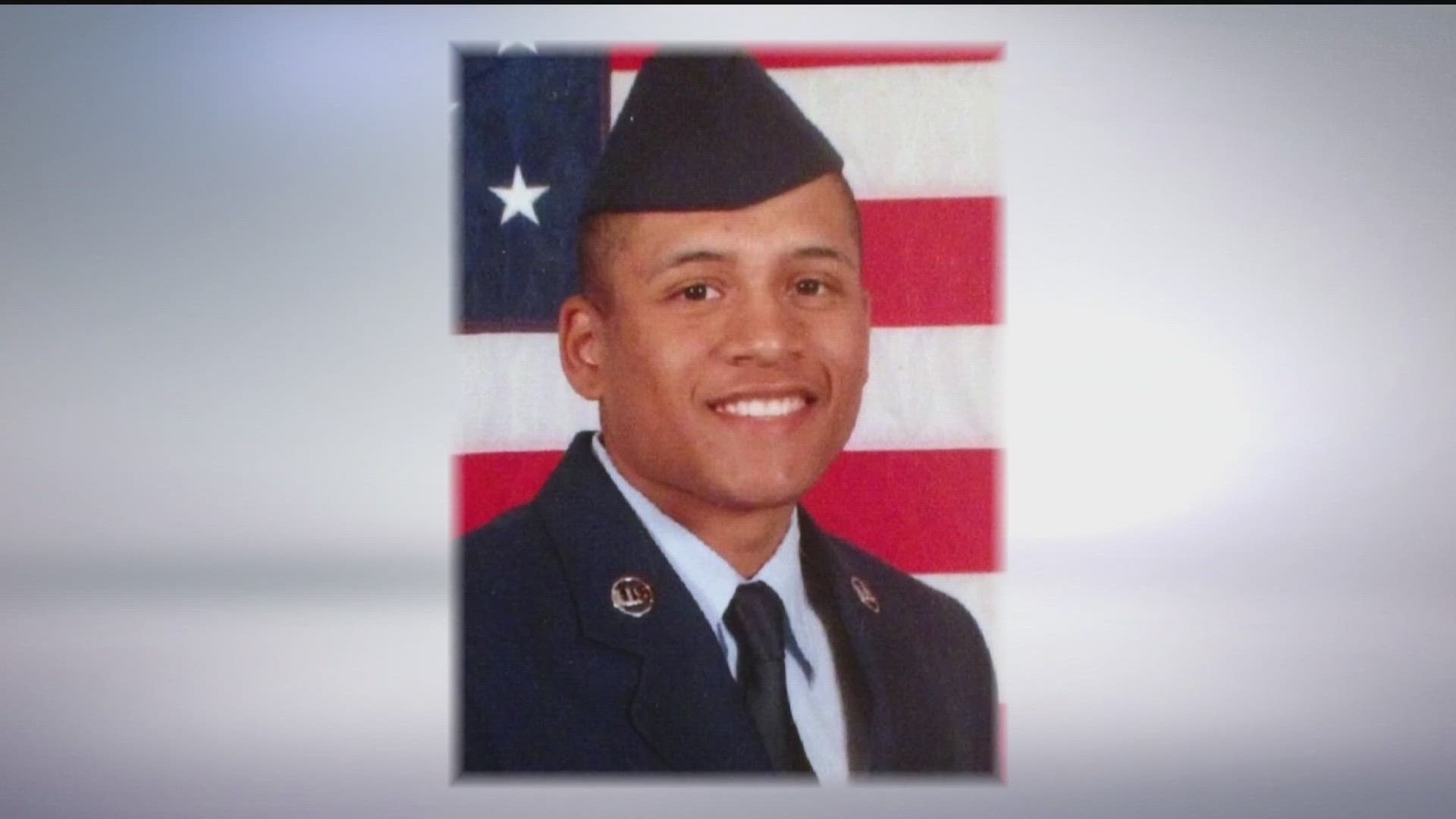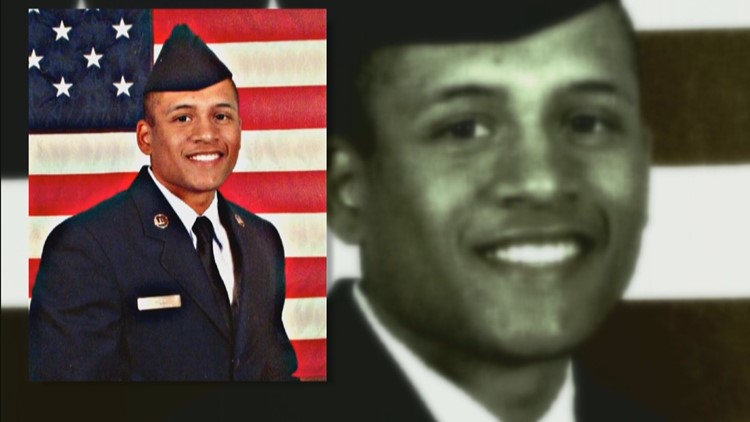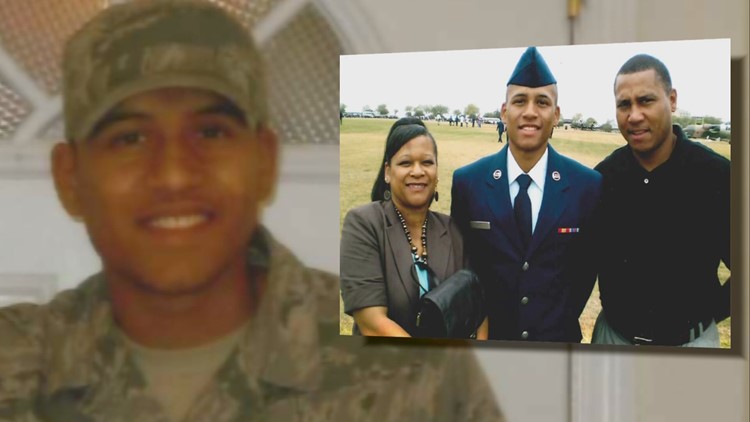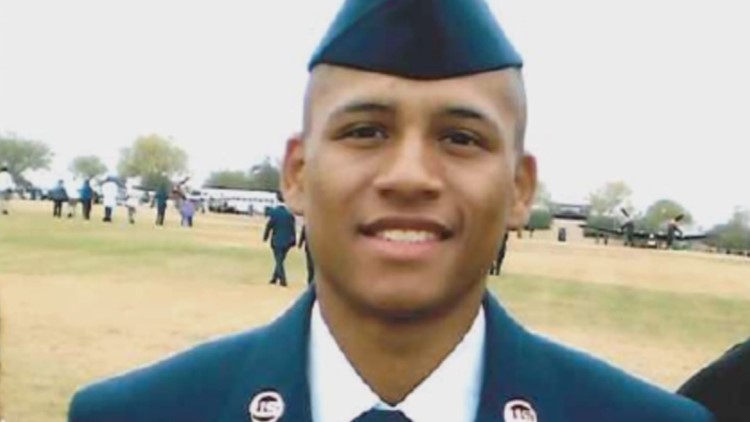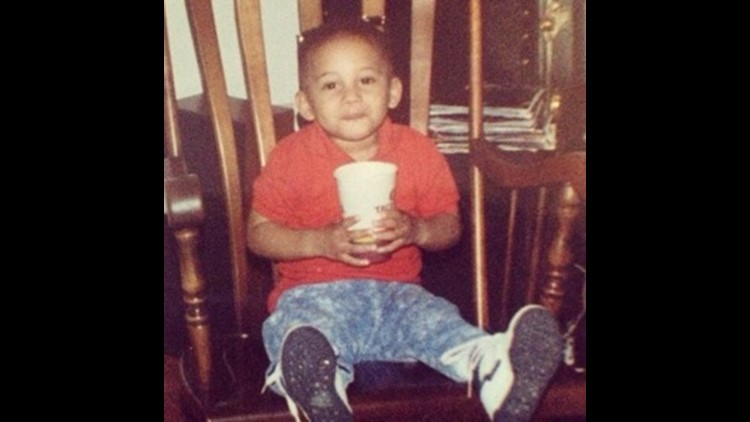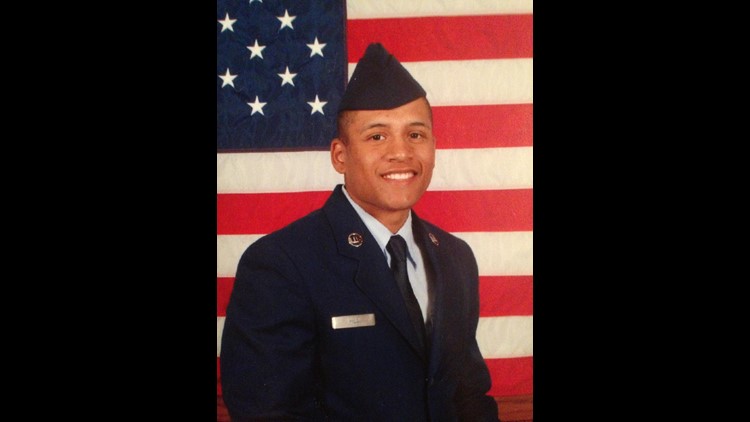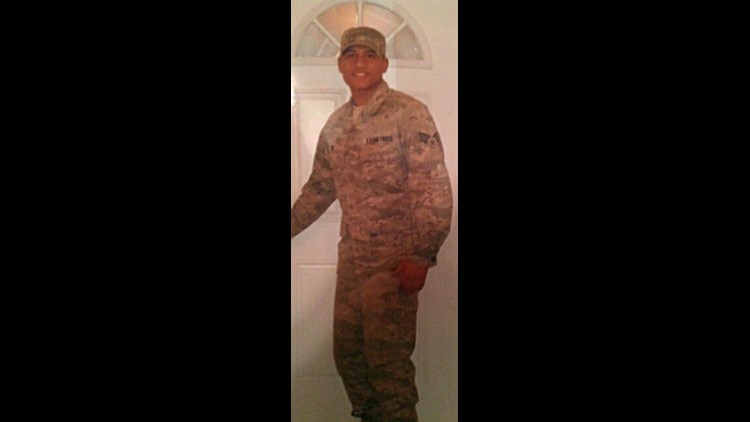DEKALB COUNTY, Ga. — A former DeKalb County Police officer who was convicted after the deadly shooting of an Air Force veteran in 2015 has now had his convictions overturned.
Robert Olsen was previously convicted on charges of aggravated assault, violation of oath of public office, and making false statements in the 2015 shooting death of Anthony Hill, an unarmed, naked military veteran during a 911 response call. Olsen was acquitted of felony murder in the trial.
Hill, who was off his medication for treatment he was receiving as a result of his service in Afghanistan, was acting strangely outside his apartment complex, and worrying his neighbors, who called 911 hoping to get help for him. Hill was naked and unarmed when Olsen arrived, and Olsen said he feared for his life, and shot and killed Hill.

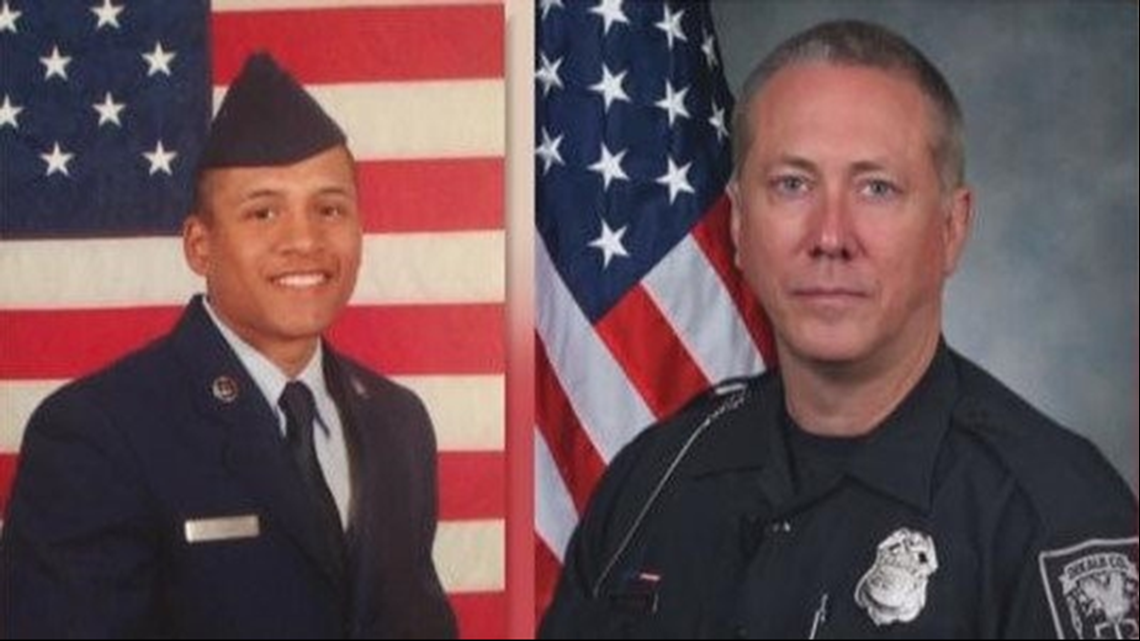
Olsen was then sentenced to 20 years with the first 12 to serve in custody.
However, in a ruling handed down Tuesday by the Georgia Court of Appeals, Olsen's convictions were overturned after an argument was made that the trial court made multiple errors over the "admission and treatment" of the Use of Force Policy (UFP) in DeKalb County, which confused the jury and inhibited him from having a fair trial.
The appeals court agreed on the basis of the objections and reversed Olsen's convictions on aggravated assault and violation of oath by a public officer due to what was determined to be a violation of the UFP. The court ruled that Olsen can be retried on the count of aggravated assault, but he cannot be retried for his violation of oath of public office charge because the evidence was "legally insufficient," the court ruled.
Olsen's attorneys also argued the trial court made an error when they admitted evidence pertaining to UFP that conflicted with Georgia law governing self-defense, and "were null, void, and of no force or effect with respect to the criminal charges lodged against him."
"The trial court, therefore, erred by admitting into evidence the UFP without first identifying and redacting those portions of the policy that conflict with Georgia law," the ruling read.
The court also highlighted in the filing that DeKalb County's Use of Force Policy explicitly said that it's for departmental use only and does not apply in a criminal or civil proceeding -- but rather just simply for sanctions within the department.
“We have worked tirelessly to hold Robert Olsen accountable for the death of Anthony Hill. While we respect the Court of Appeals, we wholeheartedly disagree with their decision and will appeal this matter to the Georgia Supreme Court," DeKalb District Attorney Sherry Boston said in a statement to 11Alive.
Background on the case
Olsen said when he arrived on scene in 2015 to a call of a naked, possibly disturbed man, Hill started running at him at full speed. Olsen said he got out of his car and twice yelled, "Stop!," but Hill continued running. He shot Hill twice, killing him. The former officer said he was scared for his life.
What was unknown at the time was Hill was an Air Force veteran who’d been diagnosed with bipolar disorder. He was off his medicine at the time of the shooting and his family said he was in the midst of a mental breakdown.
Prosecutors argued the decision to use deadly force - with a number of other tools at his disposal to use in the situation - could not be justified and constituted murder. Olsen's defense team had argued he had only an instant to react.
When the jury returned a mixed verdict, convicting Olsen on four charges but acquitting him of murder, the verdict was met with criticism from both sides.
PHOTOS | Anthony Hill
After the courtroom cleared, Robert Olsen’s wife was left sobbing, surrounded by friends and family while the former Dekalb police officer was led out by deputies -- but not placed in handcuffs.
Olsen cried off and on through the entire hearing - often wiping his eyes or ringing his hands.
Supporters of Hill felt Olsen was let off easy. Supporters of Olsen said he felt he should never have been charged in the first place.
A juror that spoke with 11Alive News after the verdict was announced mirrored that sentiment. He said the jury split upon whether it was murder or self-defense. The juror, who didn’t want his name or face shown, said the verdict was the best compromise they could get. The jury deliberated for six days, at times sending notes to the judge indicated they may be deadlocked on certain charges.
FULL VERDICT FROM 2015
- Count 1: Felony murder - not guilty
- Count 2: Felony murder - not guilty
- Count 3: Aggravated assault - guilty
- Count 4: Violation of oath of office - guilty
- Count 5: Making false statements - guilty
- Count 6: Violation of oath of office - guilty
Olsen faced up to 30 years in jail, because Counts 5 and 6 were merged by the judge. Prior to his trial, he turned down a plea bargain that would have given him 15 years in jail.

